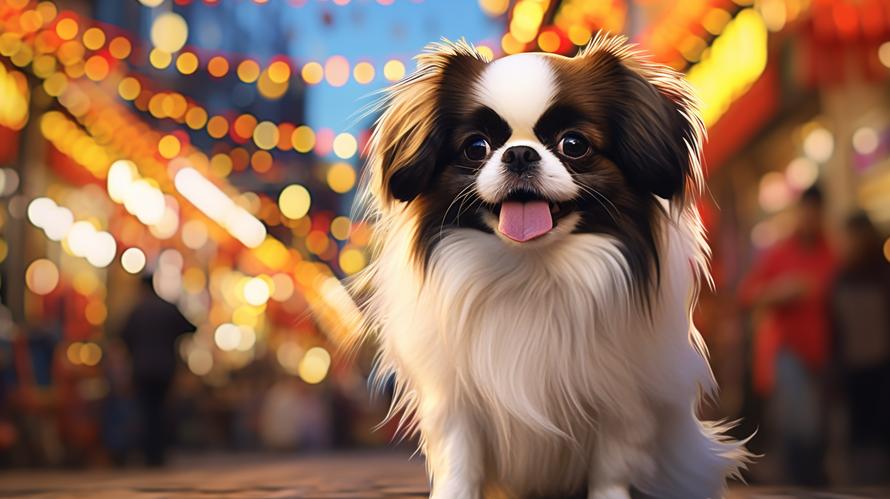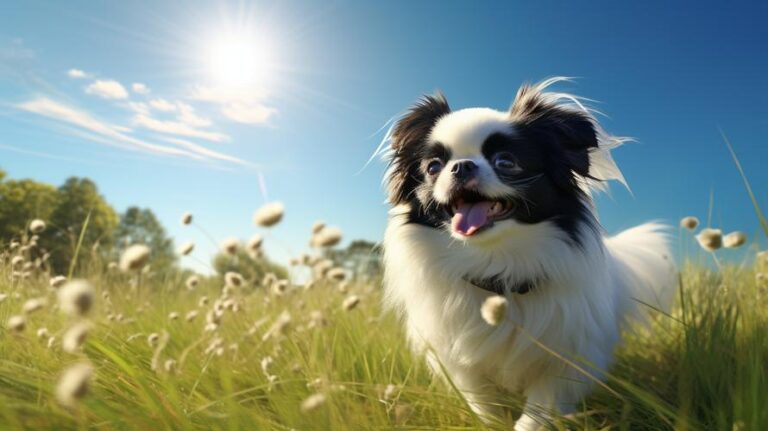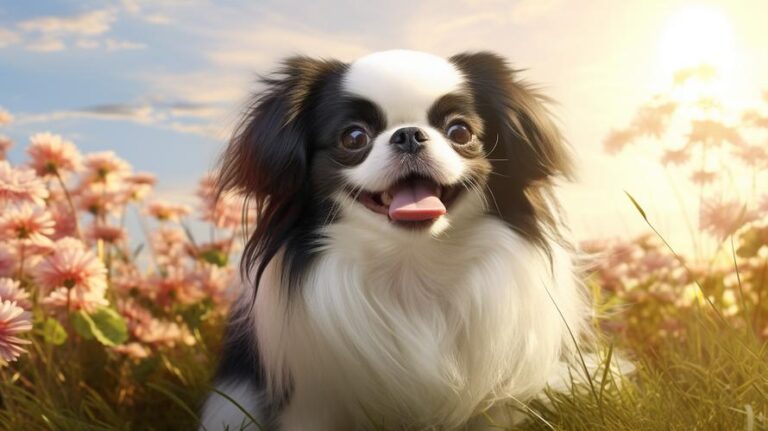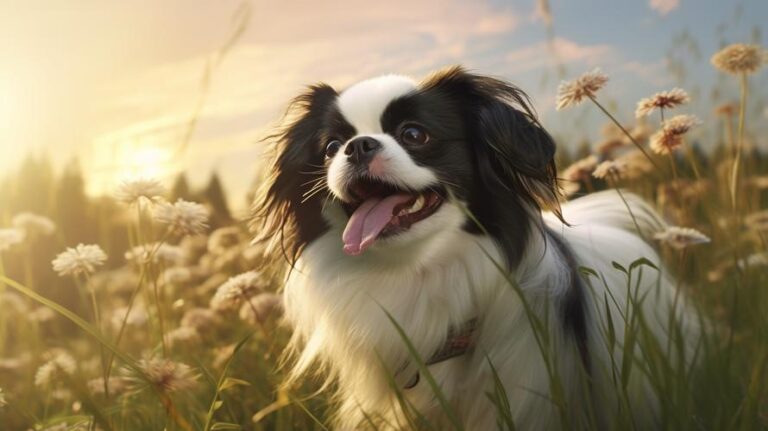Guess what? Your Japanese Chin thrives on sushi!
Got your attention, didn’t it? While it might seem logical to feed Japanese-originated dogs, such as your elegant little Chin, a traditional Japanese diet, including sushi, the reality is a bit different.
Let’s dive right into the world of these fascinating canines and discover together what is the best thing to feed your Japanese Chin.
On first sight, the Japanese Chin may appear like the oriental version of every furry friend you’ve ever had. But these unique creatures are far from your average four-legged pals. The Japanese Chin, unlike most breeds, wouldn’t mind whiling away the time on your lap, artfully nibbling at delicacies that you offer, while gazing into your eyes with squinting eyes full of ancient wisdom.
But hold your horses (or your Chin, for that matter) – they may love food, but fundamentally not all food is good for them, and disappointing as it may be, sushi is better left off their menu. But don’t worry, we won’t leave you—or your Chin—in the lurch; read on to discover the cuisines that will tickle your dog’s fancy and keep them healthy.
Curious Fact Alert!
The Japanese Chin, despite the association with Japan, actually originated in China, a bit of a geographical twist right there! And yes, while we’re bursting bubbles, they don’t eat sushi as a regular meal.
So, what does this beautiful breed need in its diet?
As dogs, Japanese Chins relay on us, their human pals, to provide their daily nutrition. Despite their refined appearance, they need protein, carbohydrates, fats, and minerals just like any other breed. However, their smaller size, distinct personality, and specific health concerns mean that specialized meals are in order.
Protectors of Protein!
Regardless of the breed, dogs are descendants of wolves, which means that they are primarily meat-eaters. Therefore, the primary ingredient of your Chin’s diet should be high-quality animal protein. Protein helps build strong muscles and maintain lean tissue. It also plays an essential role in strengthening the immune system.
Simply put, your Japanese Chin needs protein to stay healthy. But don’t rush to load their bowls with stacked steaks. Quality is just as important as the component itself. Look for foods where meat is the first ingredient listed: chicken, turkey, beef, or fish are all great sources of good quality protein.
Carb-loaders or Carb-deniers?
Just like us humans, dogs need carbs. Carbohydrates are essential sources of energy and help maintain a healthy weight and digestive system. However, opting for complex carbohydrates like sweet potatoes instead of simple carbs like corn syrup can make a big difference in your dog’s overall health.
Enter, Essential Fats
Fats are often wrongly vilified. Do you know that fats provide the most concentrated source of energy for dogs? They aid nutrient absorption and also provide insulation. Yes, you heard right. Just like that cozy winter jacket, fats help keep your Japanese Chin warm. Good sources of fat include chicken fat, salmon (or other fish) oil, and even flaxseed.
Mix in those Minerals
Minerals contribute to various body functions like bone formation and nerve impulse transmission. They’re just as essential to your furry friend’s diet as proteins, carbs, and fats.
Your dog food should be rich in calcium, phosphorus, copper, and iron, among other minerals. Just remember, all minerals should be chelated; this means they should be attached to an amino acid so they can be easily absorbed by your Chin’s body.
Water Pride
Never underestimate the importance of clean, fresh water. A well-hydrated Chin is a happy Chin. Any changes in water consumption might indicate health issues and should be immediately addressed.
Keeping it Chin-worthy
Japanese Chins have sensitive stomachs, so it’s best to avoid foods with artificial additives and processed meat. Instead, lean towards natural, organic food. You can also consider adding probiotics or digestive enzymes to their diet, under veterinary guidance.
Don’t Forget the Love
Every meal you prepare or select for your Japanese Chin should have an extra ingredient—your love. Ensure you’re feeding them not just for their physical wellbeing, but also for their happiness. Make mealtime fun and bonding experience.
Remember, while kibble can be a convenient, nutritionally balanced choice, don’t be afraid to supplement with safe fruits, veggies, and cooked meats for variety and extra nutrition. Always confirm with your vet if a food is safe for your Chin before adding it to their diet.
Lastly, every dog is unique, even within the same breed. If a certain diet doesn’t work for your Chin, change it! They rely on you to take care of their health and happiness. Don’t shy away from seeking a vet’s advice. After all, nothing but the best for your Japanese Chin, right?
Because let’s face it—not many can resist those endearing bat-like ears and equally enchanting, all-knowing eyes.



